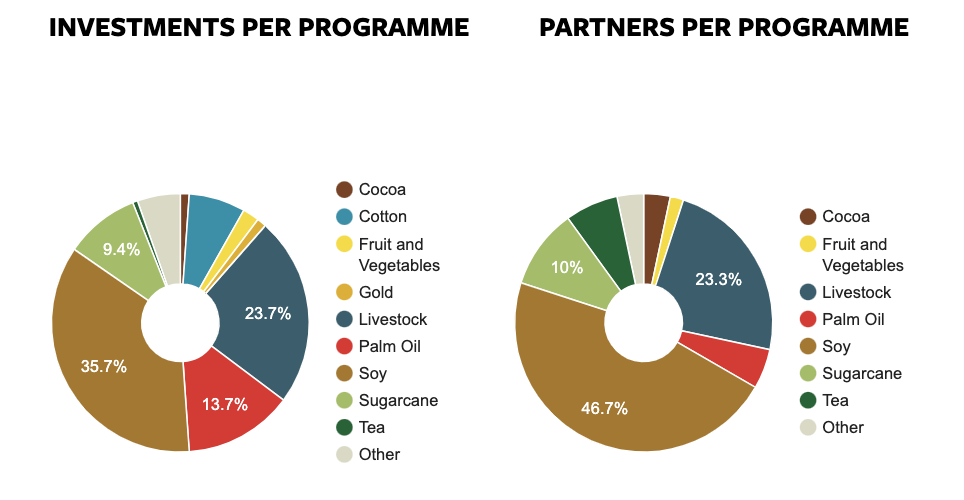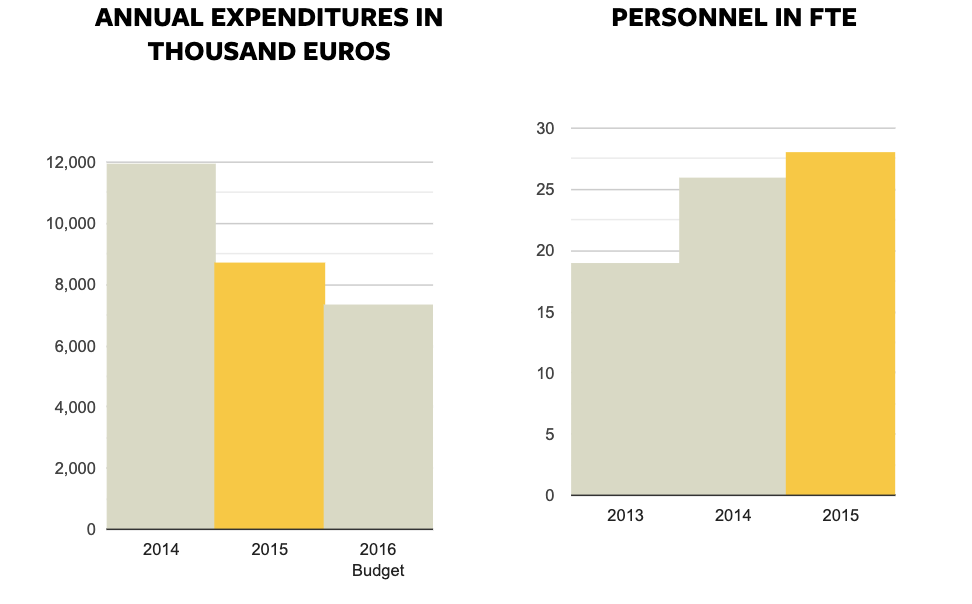REGIONAL COMMODITY PROGRAMMES
Brazil has made progress on an environmental framework and relevant commitments for low carbon agricultural policies as agreed at COP21 in 2015. However, in order to become a reality, these commitments need to bring together public-private and civil society partnerships. Solidaridad is taking on this role, engaging with the environmental public sector to structure an upscaling of the smallholder production model for zero-deforestation and forest code compliance.

The implementation of Solidaridad’s five-year project with Friesland Campina in the main citrus production area in Brazil aims at reducing the ever increasing number of small producers leaving the business due to the sector’s crisis. A sustainable approach to orange production will not only reduce liabilities from a social, economic and environmental standpoint, but also improve the quality of life of people working in this field.

Cattle ranching is one of the main productive activities in the region, but sustainability has only been recently introduced into the sector’s agenda as a result of environmental laws. With the definition of the Global Round Table of Sustainable Beef (GRSB) principles and criteria, Solidaridad is now advancing towards building the first environmental risk-free supply chains in the region.

Work with ADM helped smallholder suppliers on their path towards adopting sustainable practices and social and environmental compliance. This enabled a considerable increase in household revenues and created rural employment opportunities, spurring local socio-economic development in the Amazon.

Five years ago, soybean produced under sustainable schemes was almost non-existent in the region. Today, however, a group of leading producers have set the precedent that responsible production is possible, affordable and good for business.

With the successful conclusion of the market development campaign and RenovAção project, Solidaridad stands today as the most respected sector NGO in Brazil, one of the leading producer countries in the world. Solidaridad has proven its ability to integrate the entire supply chain and find innovative solutions to challenges both on farm as well as off farm.

After five years, Solidaridad’s tea programme in South America crossed the frontiers of Argentina and landed in Eastern Paraguay. This expansion was the result of Solidaridad’s shift to yerba mate cultivation in 2014 in Argentina. Yerba mate is highly appreciated among smallholders as a fast return cash crop to diversify production. Increasing yields by adopting good practices opens an opportunity to improve income and living conditions.

DEVELOPMENTS
The external pressure to double food production by 2025 in order to feed the world is under a greater requirement: to achieve this goal while also respecting forests. This challenge follows the public declarations of the governments of Brazil and Paraguay at the UN Climate Conference 2015 in Paris regarding their commitments to low carbon agricultural policies. The challenge to increase deforestation-free agricultural production and investments is now higher on the public and private agendas.
In spite of a recent drop in prices of soy and beef, soy farms continue to expand in areas where they can reach higher performance. The area planted with soy in Brazil increased by 3.6% in 2014/15 as compared to 2013/14 totalling 33 million hectares, but the country also witnessed a reduction in areas intended for cotton, corn, dry beans and pastures. The areas planted with soy in Argentina and Paraguay remained at about the same levels as in the previous year, i.e. 20 and 3.5 million hectares respectively. Since December 2015, the new administration of the Argentinian government began implementing measures toward a more open and liberal economy that would allow for the expandsion of area and volume for soy and livestock for Argentina in the near future. These new measures might negatively affect beef exports from Paraguay.
Solidaridad reconfirms its goals to contribute alongside public and private partners in adapting national forestry laws to regional and local realities through local policies, legislation, incentives and tools for deforestation-free agriculture in the major biomes: Amazon, Cerrado and Chaco.

ACHIEVEMENTS
The Solidaridad soy programme in Brazil, Argentina and Paraguay consolidated the initiatives contained in the Soy Fast Track Fund (SFTF) which is co-funded and coordinated by IDH. The programme achieved 1,476,006 sustainably managed hectares (certified or verified under diverse schemes) by 3,435 producers in alliance with 26 organizations (companies, NGOs and traders) through 36 projects. The work in Brazil included 1,227,501 hectares which covered 3.8% of the Brazilian surface with soy.
The main outcome of the soy programme is improved farm management by smallholders in terms of better financial control and data registry of internal control systems. The improvements for medium and large farms also cover compliance with labour and environmental laws (local and national) which includes aerial spraying, water and forest conservation and community relations.
Solidaridad has further developed Rural Horizons, the e-tool that supports producer self-learning for continual improvement. Rural Hroizons has been developed for producers in palm oil, cotton, citrus, livestock, sugarcane and soy in Brazil and Paraguay. Close to 2,000 producers have used the e-tool in 2015.
The poverty alleviation project in Mata Azul and Macife I, Brazil, contributed approximately 3,800 calves with improved genetics. The 103 beneficiaries have achieved an unexpected level of high-quality cattle in the area where they live. In addition, the knowledge and experience acquired by the producers will be shared with other community members so that progress can be disseminated across the entire region.

PARTNERSHIPS
In soy, Solidaridad works with important donors such as IDH, the Dutch government (FSP) and Marks & Spencer’s. Relationships with farmers are widespread and cover a diversity of players, including smallholders, mid-size farmers and industry leaders covering some 50 million hectares/120 million tonnes of produce in the region. The Round Table for Responsible Soy remains the main certification benchmark, and market players are the ABCDs and Chinese traders (Nidera, Nobel). Higher up in the supply chain, Solidaridad works with Unilever and a variety of dairy industry players in Europe. For meat and eggs, Solidaridad collaborates with Nevedi partners, and in Europe, with Fefac.
In livestock, the second largest programme in the region, Solidaridad is strongly positioned in the GRSB, and also the Brazilian national platform for sustainable beef GTPS. In addition, McDonalds, Cargill, Elanco, Walmart, JBS, Marfrig are some of the more prominent partners on board. In Uruguay, Solidaridad works with Zandbergen, Rainforest Alliance and Alianza de Pastizales.
In palm oil, Solidaridad works with Agropalma out-growers – the biggest palm oil company of the continent – and ADM.
In cocoa, Solidaridad is gradually building contact with Cargill.
For Brazillian cotton, our partner is Abrapa, the influential national association of growers. Our donor is C&A.
In orange juice, Solidaridad works with public and private research organizations (IAC, Fundecitrus and EMBRAPA) and producers organized in cooperatives/associations.
For sugarcane, our partners are Raízen/Shell, Arcor and Unica.
In tea, partnerships have been built with Rainforest Alliance and Unilever (Lipton Icetea), and the large trader Tres Marias for yerba mate infusion.
ORGANIZATION
The main organizational development in 2015 was the merging process from June to November between Solidaridad’s regional office for the Andes and the office covering the rest of South America. An enlarged management team is taking care of adjusting internal practices in order to benefit from synergies and more cultural and thematic diversity.
The total number of full-time employees in the former South American regional centre was 31 in 2015, which was distributed among three country offices in Asuncion, Buenos Aires and Sao Paulo, and covered work in five countries. There were no significant changes in the number of personnel with the exception of a small growth in the Rural Horizons team.
After rigoruos analysis of the Chaco biome, Solidaridad presented the main findings and implications for future work in sustainable landscapes through three events in the Argentinian society. The studies were mainly financed by the Moore Foundation.
After bringing together key Brazilian companies, and facilitated by Solidaridad, green plastic derived from sugarcane biomas is now produced and used in the Tetra Pak container in Brazil. Socicana (cane producers), Raízen (cane processors), Braskem (petrochemical plastic supplier) and Tetra Pak (packaging supplier) presented this development in Sao Paulo at a public event. Tetra Pak in Brazil will have at least one layer of green plastic. The company forecasts production of 13.5 billion units in 2016.
